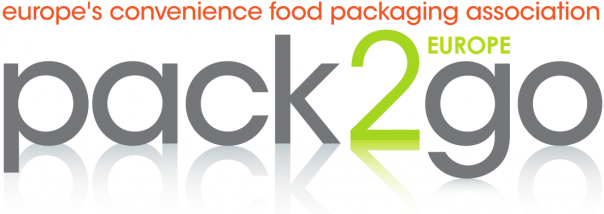
It is also not happy about the way it handled the drafting of a directive in May on single use plastic.
It claims the consultancy the EC used in the process had a conflict of interest and that the commission then rushed through an inadequate impact assessment of the measures it proposed.
Pack2Go president Mike Turner, whose association represents food and beverage service and convenience packaging manufacturers in Europe, says: “As a result, the draft law proposes to ban some products and restrict access to a wide range of food & beverage service packaging and related items - made both from plastics and combinations of plastics with other materials - that are vital to guarantee food hygiene, to safeguard public health and to provide consumer safety for food and drinks consumed out of home and on-the-go.”
In doing so, he claims, the commission ignored its own rules.
“The impact assessment for the so-called plastic bags directive took two years to do properly and it was just one type of product.
“The proposed single use plastic directive will cover hundreds of product types. The impact assessment on this is totally inadequate. It misses out vitally important analysis that will result in consumers being put at risk.”
The single use plastics directive, released on 28 May, wants to ban single-use plastic products if there is an alternative readily available and affordable.
For products without straightforward alternatives, the focus will be on limiting their use though a national reduction in consumption, design and labelling requirements and waste management or clean-up obligations for producers.
The complaint about the EC’s Plastic Strategy, which was released in January, calls into question the role of Eunomia, a British environmental consulting firm, which acted as the commission’s adviser in the consultation process.
Turner says that at the same time that Eunomia was working for the commission on proposals to restrict single use plastics, it was also being paid by it to research and prepare an advocacy report on single use plastics and the marine environment.
Pack2Go Europe explained that Eunomia ‘had publicly and actively campaigned in its own right for a range of restrictive measures’ against single-use plastic, which it claims was a ‘blatant’ conflict of interest that the Commission must have known about.
This second role for Eunomia was paid for by a lobby NGO (non-governmental organisation) called Seas At Risk, which is funded by the EC.
Seas At Risk then used the Eunomia report to in its representations to the EC.
“The conflict of interest in this situation is even more blatant. Many of the measures advocated by Eunomia in its campaigning and in the report written for Seas at Risk have since found prominence, directly or indirectly, in the proposed single use plastics directive,” says Turner.
“The dramatic step of complaining to the Ombudsman reflects the huge degree of frustration across the packaging value chain about the cavalier way the commission has abandoned its tradition of developing policy on balanced, evidence-based analysis in favour of political expediency and media headlines.
“It is surprising that the commission employed as supposedly objective advisers a consultancy that was evangelical about its own policy views.
“It is shocking that the commission then paid the same people to lobby it at the very moment that they were sitting together at the same table and drafting new EU policy together.”
Once the complaint is received, the European Ombudsman, Emily O’Reilly, who has the power to hold the EU’s institutions and agencies to account, will open an inquiry if she feels there is substance to the complaint.